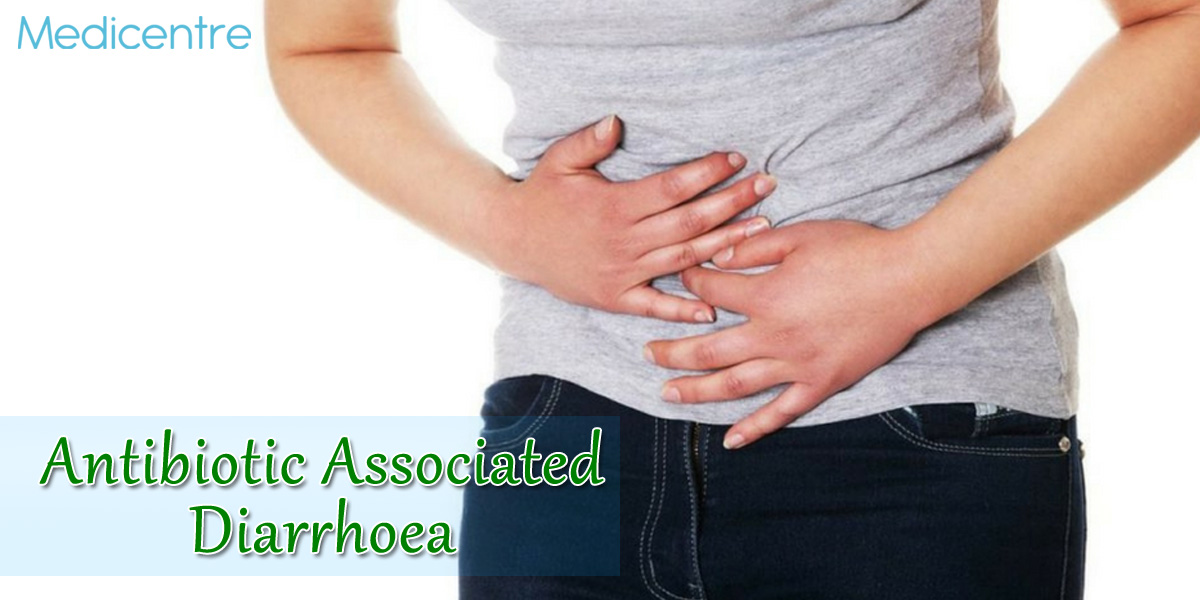Antibiotic Associated Diarrhoea
Diarrhea refers to frequent loose stools that are more than 3 loose stools in a day. It can be acute as well as chronic depending on the duration and the onset. Antibiotic-associated diarrhea is caused by one or more broad-spectrum antibiotics includes ampicillin, clindamycin, and cephalosporins by disturbing the symbiosis of organisms in the intestine.

CAUSES:
Clostridium difficile is the main cause for it. It can infect the bowel and cause colitis. Whenever you take an antibiotic, it disrupts the normal flora that protects the body from infection and ultimately allows C. difficile to multiply and grow and release toxins that damage the cell lining of the intestinal wall and thereby causing symptoms of dialarhoea, abdominal wall, and fever.
RISK FACTORS:
- Recent hospitalization
- Old age
- Inflammatory bowel disease
- Past infection with C.difficile
SYMPTOMS:
- Watery stools like up to 10-15 times/day
- Dehydration
- Pus or blood in the tool
- Loss of appetite
- Weight loss
- Abdominal pain
- Fever
- Sepsis
DIAGNOSIS:
- Stool culture
- Blood test
- Serum electrolytes
TREATMENT:
- STOP THE ANTIBIOTIC USE: Immediately stop the antibiotic that is harboring C.difficile such as ampicillin, clindamycin, cephalosporin and many more as described by your doctor.
- MEDICATIONS: oral antibiotics such as vancomycin, fidaxomicin is used to treat C.difficile infection for 10-14 days.
- PROBIOTICS: are healthy microorganisms that do not kill C.difficile but prevent the growth of it.
- FLUID REPLACEMENT: dehydration should be treated by taking an adequate amount of fluids includes diluted juices, soups etc.
- ADEQUATE DIET: it is important to have a good nutritive diet that includes fresh vegetables, fruits, bananas.
PREVENTION :
- Wash your hands daily with water and antibacterial soap to prevent C. difficile infection.
- Prevent yourself from getting contact with the patients in hospitals who already have the infection by washing your hands after and before contact.